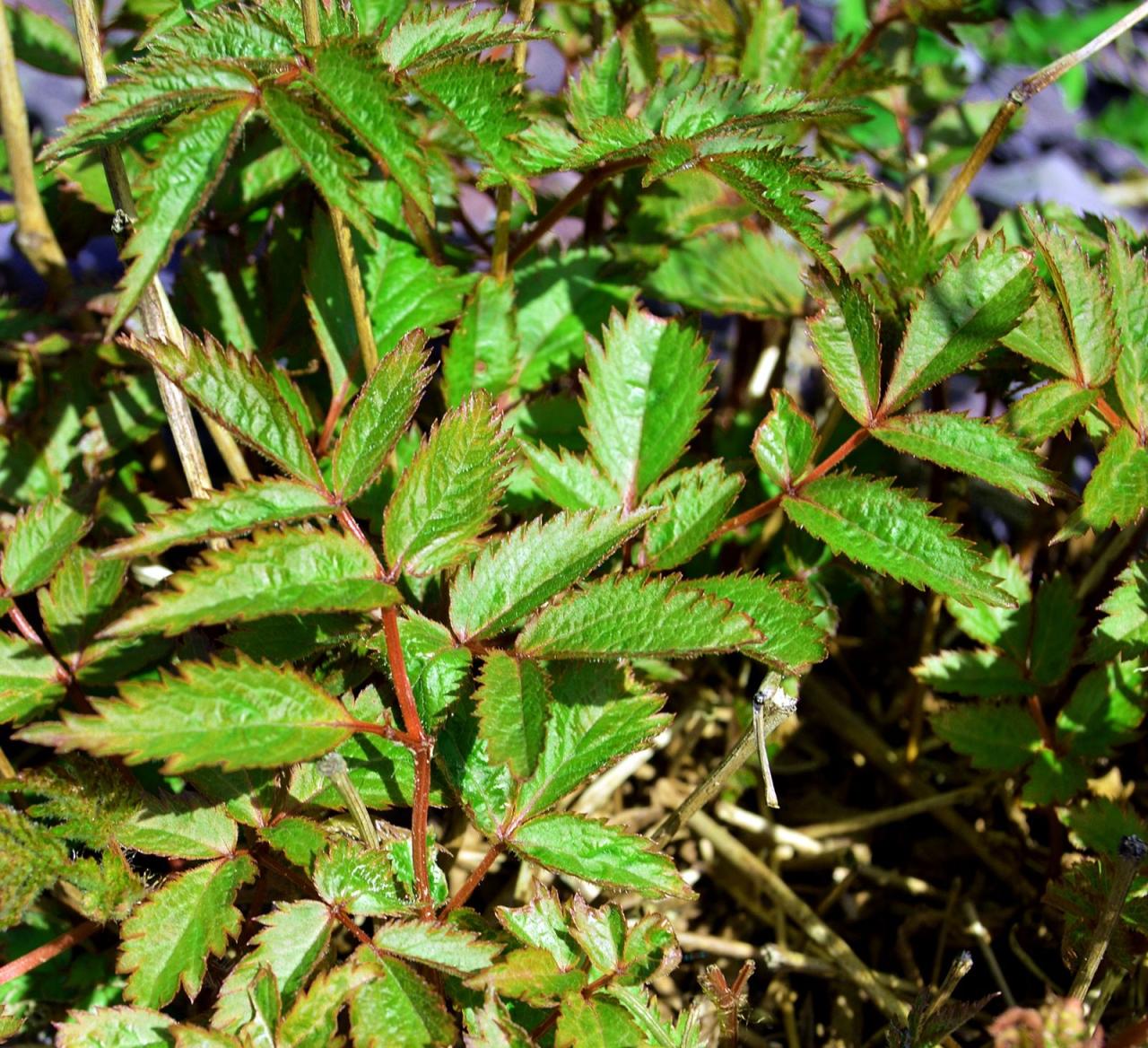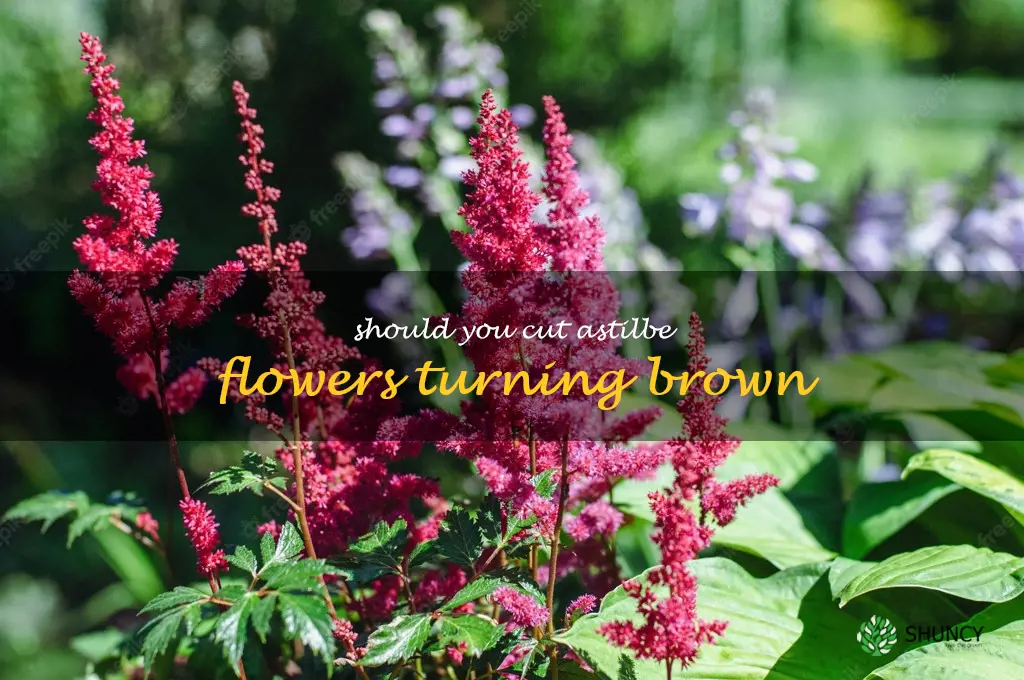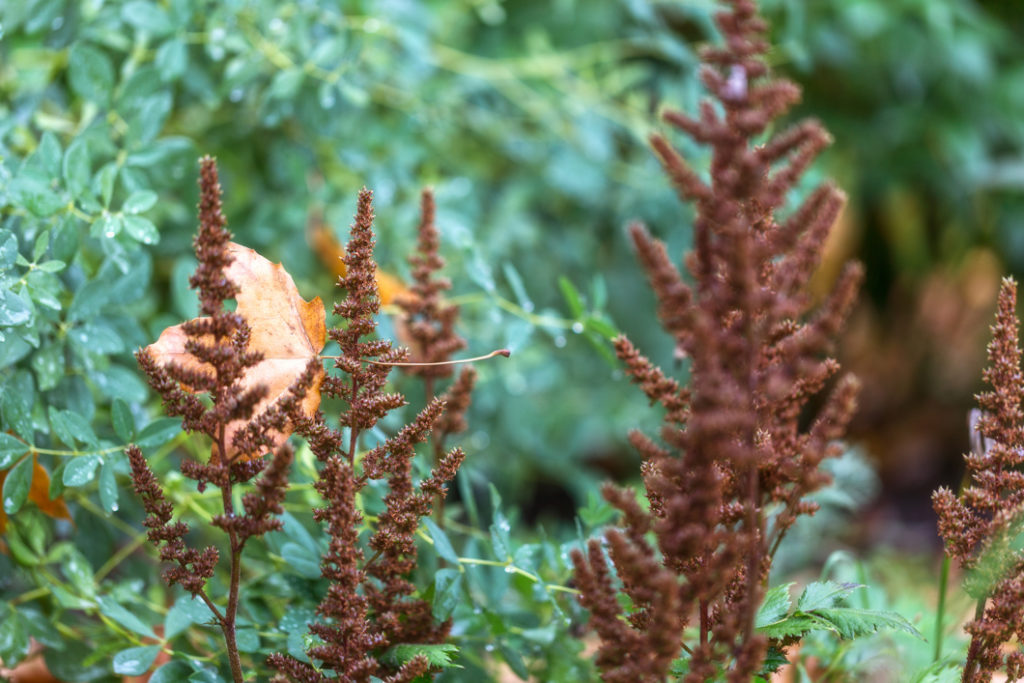Astilbe, known for its beautiful, feathery blooms and lush foliage, is a popular choice for gardeners looking to add vibrancy to their landscapes. However, one common issue that many gardeners face is the phenomenon of astilbe leaves turning brown. This can be a cause for concern, as it often signals underlying issues that need to be addressed. In this comprehensive guide, we will delve into the various reasons behind astilbe leaves turning brown, explore preventative measures, and offer tips on how to care for your astilbe to keep it thriving. 🌱
Understanding Astilbe
Astilbe is a perennial plant that thrives in shady or partially shady environments. With a wide range of colors—ranging from white to pink and red—these plants can elevate the aesthetic appeal of any garden. They prefer moist, well-drained soil and can tolerate a variety of climates, making them a favorite among both novice and experienced gardeners.
Botanical Characteristics of Astilbe
Astilbe plants are characterized by:
- Feathery flower spikes that can reach up to 3 feet tall.
- Lush green foliage that often persists into fall.
- Hardiness in USDA zones 4 to 8.
Why Do Astilbe Leaves Turn Brown?
Several factors can lead to the browning of astilbe leaves. Understanding these can help you take corrective action quickly. Here are some of the most common reasons:
1. Underwatering
Astilbe plants thrive in moist conditions. If they are not receiving enough water, the leaves can start to turn brown and crispy. This is especially prevalent during hot summer months.
2. Overwatering
Conversely, overwatering can also lead to brown leaves. Too much water can suffocate the roots, leading to root rot and ultimately causing the leaves to brown. It’s essential to find a balance.
3. Poor Soil Conditions
Astilbe prefers well-drained, loamy soil rich in organic matter. Compacted, rocky, or overly clay-heavy soils can lead to poor drainage, contributing to brown leaves.
4. Nutrient Deficiency
Lack of essential nutrients such as nitrogen, phosphorus, and potassium can result in browning leaves. Regular fertilization can mitigate this issue.
5. Pests and Diseases
Insects like aphids, spider mites, and diseases such as powdery mildew can affect astilbe health, leading to leaf discoloration. It’s crucial to monitor your plants for any signs of infestation.
Signs and Symptoms of Brown Leaves
Understanding the symptoms associated with browning leaves can help you identify the cause more effectively. Below is a table summarizing common symptoms and their possible causes:
| Symptoms | Possible Causes |
|---|---|
| Crispy edges on leaves | Underwatering or drought stress |
| Yellowing followed by browning | Overwatering or nutrient deficiency |
| Wilting leaves | Root rot or underwatering |
| Stunted growth | Root problems or pest infestations |
Preventative Measures for Healthy Astilbe
Taking proactive steps can help you maintain the health of your astilbe plants and prevent leaves from turning brown. Here are some effective strategies:
1. Proper Watering Techniques
Maintain consistent soil moisture, especially during the growing season. It’s essential to check the soil regularly; if it feels dry an inch below the surface, it’s time to water. 🌊
2. Soil Improvement
Enhancing soil quality can significantly impact the health of your astilbe. Adding compost or well-rotted manure can improve soil structure, drainage, and nutrient content.
3. Regular Fertilization
Applying a balanced, slow-release fertilizer in spring can provide your astilbe with the necessary nutrients. Consider using organic fertilizers for a more sustainable approach.
4. Mulching, Astilbe Leaves Turning Brown

Applying a layer of mulch around your astilbe can help retain soil moisture and suppress weeds, both of which contribute to healthier plants.
5. Pest Management
Regularly inspect your plants for signs of pests. If you notice any issues, consider using organic insecticidal soaps or neem oil as a remedy. 🐞
Caring for Astilbe Throughout the Seasons: Astilbe Leaves Turning Brown
Understanding the seasonal needs of astilbe can help you care for them effectively.
Spring Care

In spring, inspect your astilbe for any signs of winter damage. Cut back any dead foliage and apply a balanced fertilizer to encourage new growth.
Summer Care
During the hot summer months, make sure to keep an eye on soil moisture. Water deeply and regularly to keep your astilbe healthy and vibrant.
Fall Care
As fall approaches, consider deadheading your astilbe to promote more blooms. You can also cut back foliage to prepare for winter.
Winter Care
In winter, consider applying a protective layer of mulch to insulate the roots from freezing temperatures. Avoid excessive watering during this time, as the plant goes dormant. ❄️
When to Seek Professional Help
If you’ve taken the necessary steps to care for your astilbe but still notice browning leaves, it might be time to consult with a professional. A local nursery or garden center can provide insights specific to your region and climate.
Note: Always observe your astilbe plants for any additional symptoms or changes in their environment, as these can be crucial in diagnosing issues.
Common Questions About Astilbe Leaves Turning Brown
1. How often should I water my astilbe?
Water your astilbe when the top inch of soil feels dry. In hotter months, this may mean watering several times a week.
2. Can I grow astilbe in full sun?
Astilbe prefers partial shade. While they can tolerate some sun, excessive direct sunlight can lead to leaf scorch.
3. What type of fertilizer is best for astilbe?
A balanced, slow-release fertilizer is ideal. Look for a formulation high in nitrogen to support lush foliage.
4. Are there diseases that commonly affect astilbe?
Yes, diseases like powdery mildew and root rot can affect astilbe. Proper care and monitoring can help prevent these issues.
Final Thoughts
Maintaining the health of your astilbe plants requires diligence and care, but the reward is well worth the effort. With the right watering practices, soil amendments, and pest management strategies, you can prevent the frustrating issue of astilbe leaves turning brown. By following the guidelines laid out in this post, you can ensure your garden remains as vibrant and lush as the day you planted it. 🌼
